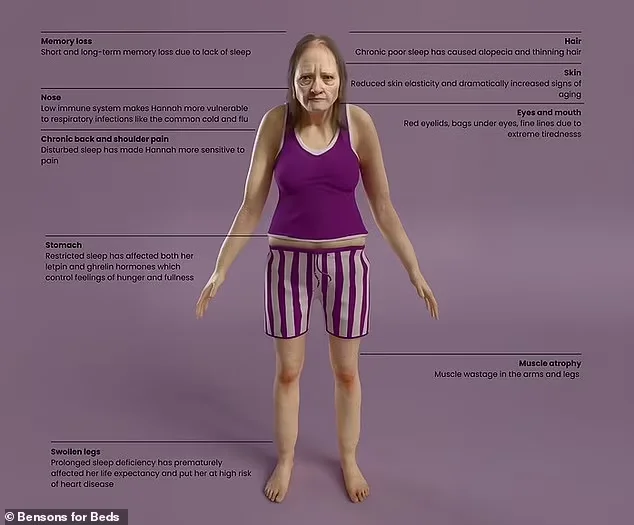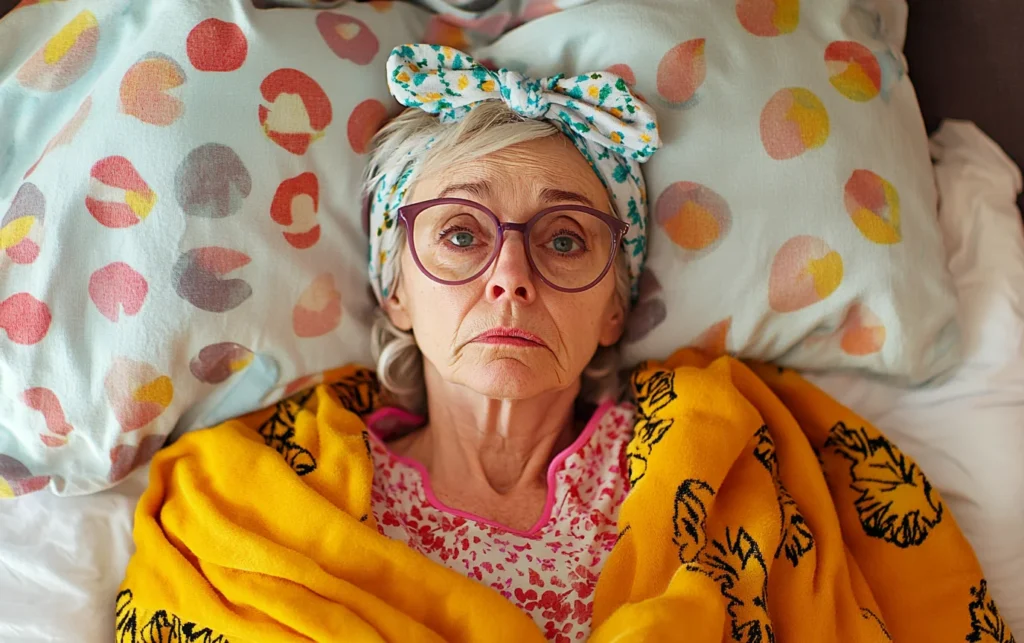A good night’s rest is essential for maintaining health and youth. However, the majority of urban dwellers today suffer from chronic sleep deprivation. The fast pace of modern life often leaves little time for proper rest. While losing an hour or two of sleep each night may not seem critical, experts warn that even small deficits can have profound long-term effects on health.
You might not notice immediate changes after sleeping 6 hours instead of the recommended 7–8, but over time, the consequences become undeniable—and they go far beyond dark circles under the eyes.
The Portrait of a Sleep-Deprived Individual
Recently, Dr. Sophie Bostock, a sleep expert, collaborated with Bensons for Beds to create a visual model of a person who consistently gets just 6 hours of sleep per night. Using artificial intelligence and extensive scientific data, the team developed an alarming depiction of what such a lifestyle could lead to after decades of inadequate sleep.
The model, named Hannah, represents the average adult affected by chronic sleep deprivation. Although Hannah’s weight and height are typical, her appearance tells a much different story. She looks far older than her actual age, with thinning hair, sagging skin, and pronounced under-eye puffiness.
Hannah’s health issues aren’t just superficial. She suffers from chronic back pain and muscle atrophy, conditions exacerbated by poor restorative sleep. The most striking feature, however, is her skin—marked by puffiness, flakiness, rashes, and a lack of elasticity, conditions that no amount of cosmetics can conceal.
The Long-Term Consequences
Dr. Bostock was shocked by the model’s appearance, describing it as a wake-up call for the modern population. “For most people, 45 years is the prime of life,” she remarked, “but Hannah looks exhausted and unwell.” Seeing the stark results firsthand underscored the severity of sleep deprivation’s impact.
Many believe that lost sleep can be made up for on weekends, but this is a dangerous misconception. The internal strain caused by insufficient sleep accumulates over time, and occasional recovery nights aren’t enough to reverse the damage. Without consistent, quality rest, the long-term health effects can become irreversible.

The Path to Better Sleep
Avoiding the dire consequences depicted in Hannah’s case requires prioritizing nightly rest. Doctors recommend adopting habits that support 7–8 hours of uninterrupted sleep as a routine part of daily life. A consistent sleep schedule not only improves physical appearance but also prevents chronic conditions such as cardiovascular disease, weakened immunity, and cognitive decline.
The artificial intelligence model developed by Dr. Bostock’s team, shown in publications like Daily Mail, serves as a powerful reminder: sleep is not a luxury—it is a necessity.

